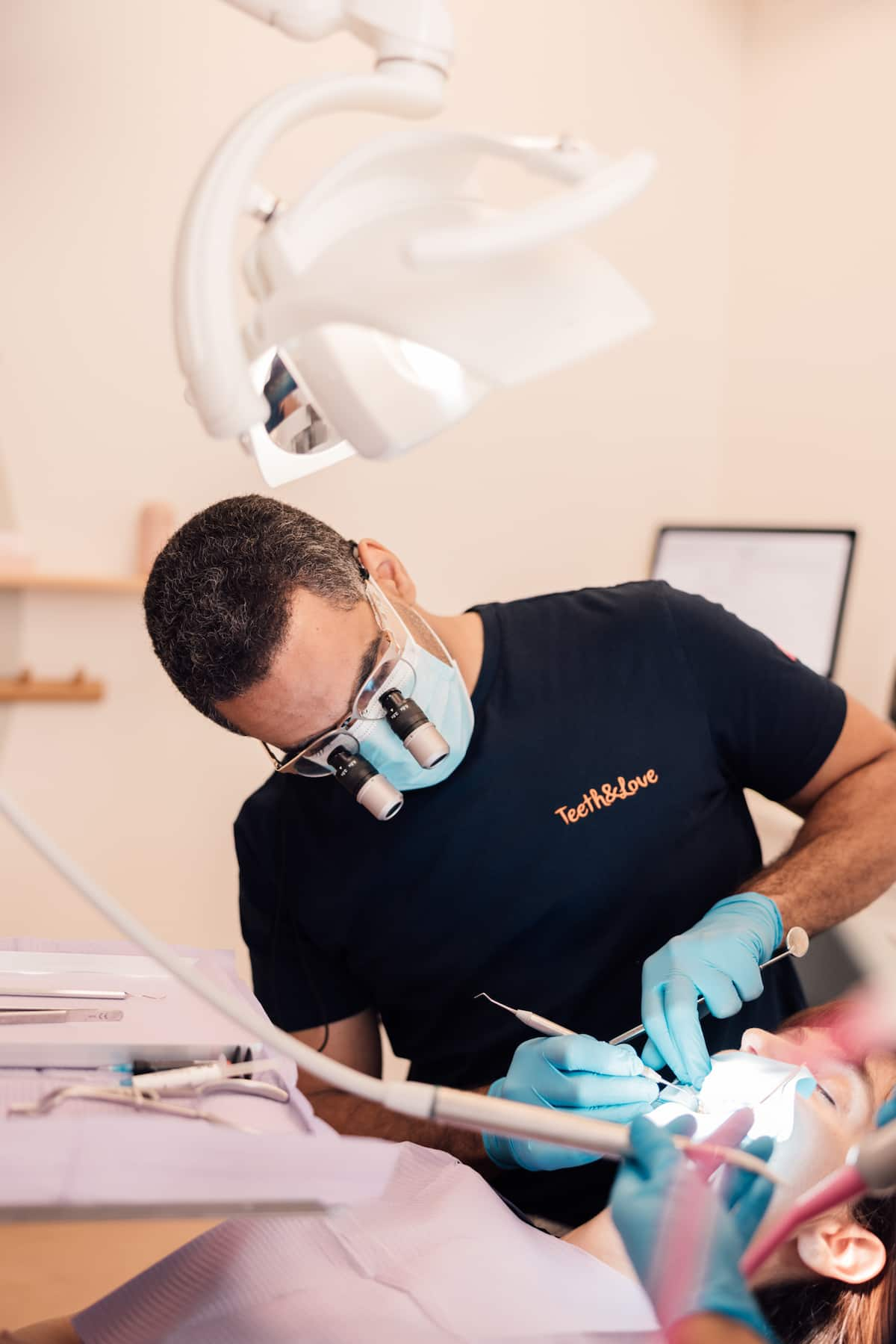Wisdom teeth extraction
Price, procedure, reasons for wisdom teeth surgery
“He who seeks wisdom is wise, he who thinks he has found it is a fool” (Seneca, 1st century philosopher) and he who extracts wisdom teeth is the surgeon (CHD philosopher).
Putting an end to clichés! The eruption of wisdom teeth (the third molars) begins towards the end of adolescence. In most young adults, there is insufficient space for these teeth to erupt fully, so they remain fully or partially impacted.
Extraction of wisdom teeth at CHD
During the initial consultation, the surgeon will take a panoramic X-ray to analyse the number, position and type of roots of the wisdom teeth.


Rates
| Extraction of wisdom teeth | from 150. to 500.- |
Exact quotation before processing.
*You can also choose to pay in installments.
Fair & transparent prices
We strive to maintain unbeatable value for money: reasonable prices, which have not changed since 2016, for quality of care that has earned us numerous awards:



Advice
The session ends with tailor-made advice from the dentist on the best oral and dental practices to follow following the extraction of your wisdom teeth.
Everything you always wanted to know about wisdom teeth in our video :
The extraction of wisdom teeth is often perceived as an invasive procedure that can cause swelling. With today’s gentle methods, there is virtually no question of these kinds of post-operative concerns: most of the time, we manage to achieve reproducible healing, and patients return to work the very next day.
Dr Hussein, Dental Surgeon, CHD Lausanne.
Next appointment
The number of sessions varies according to the complexity of the case and the number of trials required before the final aesthetic is validated, and is usually limited to 4 appointments.
Our dental clinics
Find out more about wisdom teeth extraction
Wisdom teeth correspond to the 3rd molar, the most posterior (at the back) of the oral cavity. Because of its broad, flat anatomy, made up of 4 or 5 cusps, the wisdom tooth, like any molar, plays a part in mastication by crushing and crushing the food bolus. It also acts as a wedge for the lower jaw, preventing it from slipping forward.
However, as we evolve, fewer and fewer wisdom teeth manage to erupt correctly, and they gradually lose their role in mastication. What’s more, our diet is becoming softer and softer, and wisdom teeth are losing their usefulness in the masticatory function. Current studies tend to show that wisdom teeth are no longer essential to balance in the dental arch.
Wisdom teeth extraction is (now!) carried out in a minimally traumatic way, under a simple local anaesthetic. More precisely, the dentist uses an anaesthetic to numb the area concerned, then lifts the gum to gain access to the wisdom tooth.
In most cases, wisdom teeth are no longer extracted using “forceps”, but by levering the tooth out of its socket: no more scary instruments!
When the roots of the wisdom tooth have a curved anatomy or are divergent from one another, the dentist separates them before removing them one by one.
Once the entire wisdom tooth has been removed, the socket needs to be cleaned and a thin suture applied to close the gum opening.
Finally, as with any surgical procedure, however minor, wisdom tooth extraction requires you to follow specific post-operative advice given by your dentist, particularly in the 48 hours following the operation.
Given that the cause of wisdom tooth pain can vary (decay, infection, inflammation, resorption of the tooth next to it, pressure of a cyst created by the wisdom tooth on a nerve, etc.), there is no single miracle solution for relieving the pain.
However, wisdom tooth pain usually responds quite positively to painkillers and anti-inflammatories medication.
To relieve the pain associated with the growth of a wisdom tooth, we therefore recommend :
– Brush the area to reduce local inflammation as much as possible
– Use a Chlorhexidine-based mouthwash
– Take a painkiller such as Dafalgan, or even a supplementary anti-inflammatory such as Irfen
In all cases, the best advice is to consult one of our dentists as a matter of urgency in order to relieve the pain and prevent the condition from spreading.
It may indeed be possible to keep your wisdom teeth in certain special cases:
– If there is enough space for the wisdom teeth to erupt and they have been able to emerge perfectly, in line with the arch
– If they can be cleaned perfectly, without cavities, and are aligned in the arch
– If they are fully impacted, in a position from which extraction would entail more risks than benefits.
This is sometimes the case when the wisdom teeth are in contact with a nerve called the “inferior alveolar nerve”, the extraction of which could damage it.
Wisdom teeth are not routinely extracted, but they are becoming increasingly common, for both functional and anatomical reasons. Our diets have gradually evolved to become particularly soft these days: we no longer chew raw meats, and cooking has softened most everyday foods. This reduced stimulation of the jaw has reduced the volume of the chewing muscles and the size of the jawbone(called the mandible).
This is why wisdom teeth nowadays no longer have enough space in the jaw to erupt properly and tend to grow in abnormal positions, which very often leads to :
– infections,
– cysts,
– cavities(due to the difficulty of cleaning),
– resorption of adjacent teeth,
– inflammation of the gums or tension in the jaws.
At the same time, the number of emergencies caused by wisdom teeth is constantly increasing, as is the prescription of antibiotics to alleviate infectious situations.
For these reasons, wisdom teeth are extracted most of the time, except in cases where:
– there is enough room,
– eruption can take place properly,
– and when the patient manages to clean his wisdom teeth sufficiently to avoid plaque stagnation and the development of cavities.
These extractions therefore have a dual purpose:
– When they start to develop, they are a risk-prevention, i.e. prophylactic, act.
– When they have already started to create pathologies, they enable the problem to be treated before the consequences become too serious.